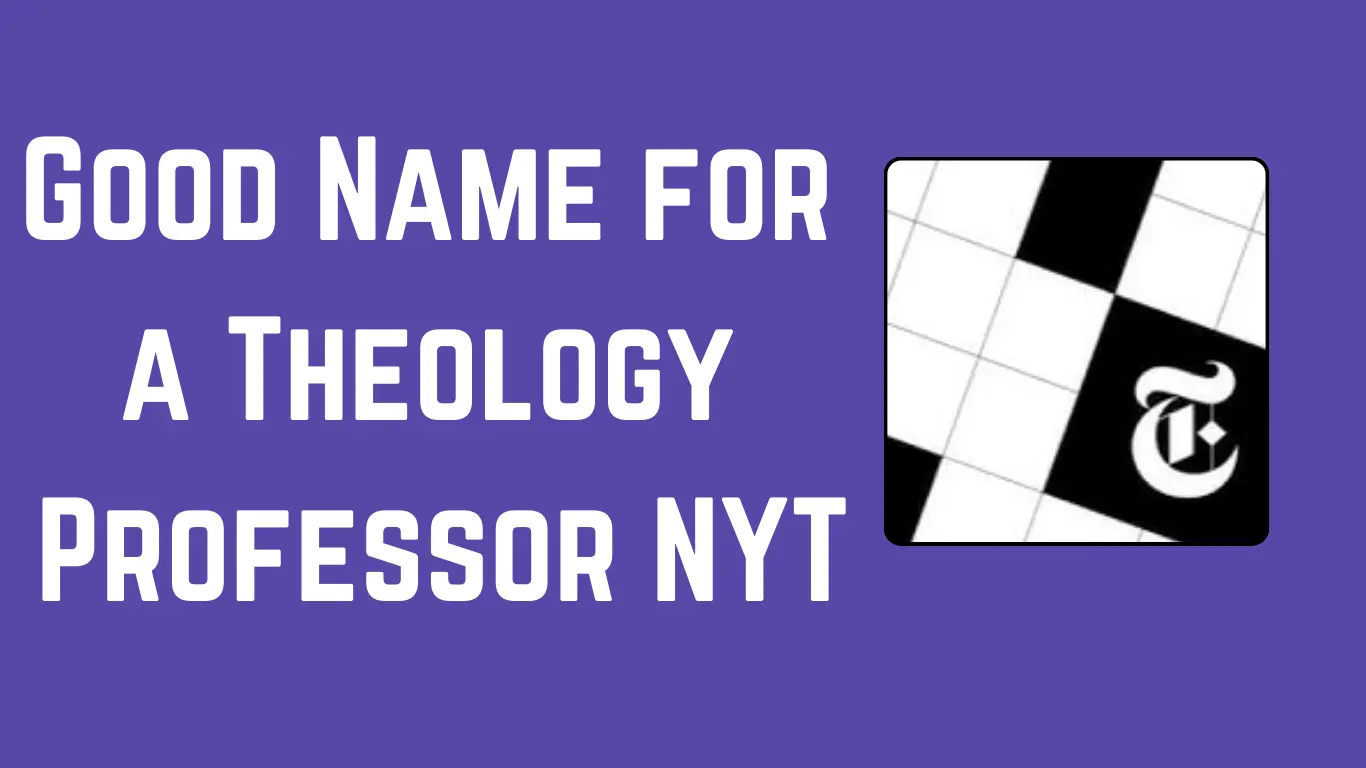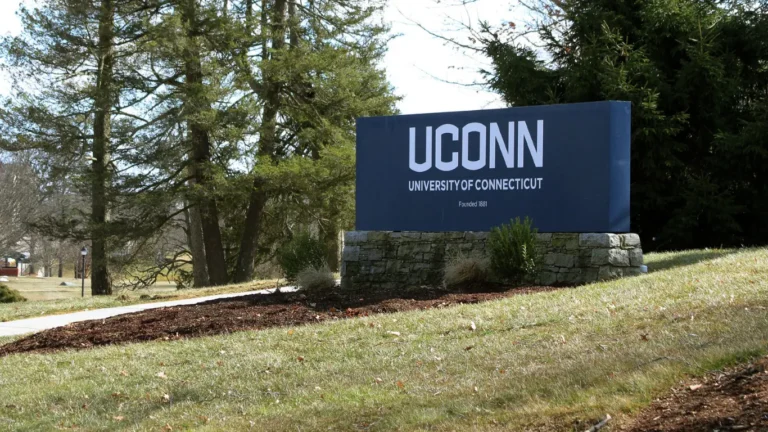Finding the Good Name for a Theology Professor NYT
Choosing a good name for a theology professor can be an enjoyable task. A name carries meaning and can make a lasting impression. For the “New York Times” (NYT) audience, it’s important to find a balance between being serious and creative. A good name for a theology professor NYT should show knowledge, respect, and approachability.
In this article, we will look at what makes a good name. We will also give examples and tips to help you choose the right one. Whether the name is for a real person or a fictional character, the right name is important.
Why Names Matter in Theology
A good name for a theology professor NYT often reflects their expertise. It adds a sense of trust. Students and readers may judge credibility just by the professor’s name.
In the academic world, names often represent a legacy. A strong, memorable name, like a good name for a theology professor NYT, can inspire curiosity. It can even make theology seem more approachable.
Popular Types of Names
Some names naturally suit theology professors. They often have a timeless or spiritual feel. A good name for a theology professor NYT can reflect these qualities, creating a sense of authority and trust. Here are some common styles:
1. Biblical Names
Names like “Noah,” “Ezekiel,” or “Ruth” are perfect. They have clear ties to theology. They also carry a sense of history and depth.
2. Historical Names
Professors often have names that nod to history. Names like “Augustine” or “Luther” remind people of great theologians of the past.
3. Simple and Elegant Names
Short, simple names work well too. Examples include “John,” “Anna,” or “Mary.” These names are easy to remember and timeless.
Characteristics of a Good Name

Here are some features that make a name great for a theology professor:
1. Memorability
The name should be easy to recall. If students and colleagues can remember it easily, it will leave a lasting impression. A memorable name helps the professor stand out in their field.
2. Professionalism
A good name sounds credible and respected. It should reflect the professor’s expertise and authority. A professional name helps build trust and shows that the professor takes their role seriously.
3. Relevance
Names with biblical or historical ties often resonate more. A name like “Luther” or “Augustine” can immediately evoke a connection to religious history. This relevance shows the professor’s deep understanding of the subject.
4. Simplicity
Complicated names can confuse people. A name should be easy to say and spell. Simple names are often more approachable and memorable.
These factors can shape how students and readers perceive the professor. A name with the right balance of memorability, professionalism, relevance, and simplicity helps create a strong impression.
Examples of Good Names
Here are some examples of fitting names for a theology professor:
- Michael Cross
- Elizabeth Grace
- David Shepherd
- Clara Faith
- Matthew Hopewell
Each of these names feels professional and carries a meaningful touch.
NYT and the Role of Names
The New York Times (NYT) often highlights professors. A good name for a theology professor can grab attention in articles. It makes the professor seem relatable and knowledgeable.
Readers often trust names they can understand. Simplicity helps articles reach more people.
Cultural Impact of Names
Names often carry cultural significance. A professor’s name might reflect their heritage. This can help them connect with diverse students and audiences.
For example, a professor named “Abraham Goldstein” might reflect both biblical roots and cultural identity. This adds depth to their profile.
How to Choose a Good Name
Choosing a good name for a theology professor involves several important factors. It should be memorable, professional, and relevant to the field. Here are some tips to guide you:
1. Consider Simplicity
A name that is easy to pronounce and remember works best. Avoid overly complex or hard-to-spell names.
2. Reflect the Field
A name connected to biblical or historical figures can add depth. It shows the professor’s connection to theology.
3. Professional Tone
The name should sound credible and serious. Titles like “Dr.” or “Professor” can add authority.
4. Cultural Relevance
Think about the cultural background of the professor. A name that reflects their heritage can create a stronger connection with students.
5. Test It Out
Say the name out loud. Does it sound natural? Does it fit the image of the professor?
By following these steps, you can choose a name that not only sounds good but also conveys authority and trust.
Biblical Roots and Theology Names
Theology and the Bible go hand in hand. A professor’s name can draw inspiration from key figures in scripture. Names like “David,” “Hannah,” or “Eli” carry a deep sense of history.
Such names can create a strong connection to the subject matter. They make the professor’s role in teaching theology feel natural and authentic.
Modern Names with a Theological Twist
Not all names need to come from ancient texts. Modern names can also work if paired with a meaningful middle or last name. For instance, “Grace Thompson” combines a modern first name with a thoughtful theme.
This blend of contemporary and theological influences makes a name approachable while still tied to the subject.
The Role of Titles and Surnames
In academia, titles and surnames play a major role. A name like “Dr. Samuel Cross” combines authority with subtle symbolism. The title “Dr.” adds credibility, while “Cross” connects to theology.
Names like these show how small details can have a big impact. They shape how students and readers perceive a professor.
Names That Evoke Trust
A good name for a theology professor NYT must evoke trust. Trustworthy names are often simple, clear, and professional. Names like “Mark Andrews” or “Sarah Lewis” feel genuine and relatable.
Such names avoid unnecessary complexity. They build a connection with students and the audience at first glance. A good name for a theology professor NYT should create an immediate sense of credibility and accessibility.
Famous Theology Professors in the NYT
The New York Times has highlighted many notable theology professors. Their names often stand out due to their clarity and meaning. Professors like “Karen Armstrong” or “N.T. Wright” are memorable and respected. Learn more about famous theology professors, and how their names have contributed to their professional success.
Their names reflect their authority in theology while remaining easy to remember. This makes their work more accessible to a broad audience.
Balancing Uniqueness with Simplicity
While unique names can grab attention, they should not be too difficult to pronounce. A name like “Theophilus Johnson” is unique but still simple. It blends distinctiveness with ease of recognition, making it a good name for a theology professor NYT.
Overly complex names might confuse readers or students. Striking a balance ensures the name remains impactful and memorable. A good name for a theology professor NYT should be both distinctive and easy to understand, creating a strong, lasting impression.
Tips for Writers Creating Names
For writers crafting a fictional theology professor, here are some tips:
- Use names with historical or biblical significance.
- Combine modern first names with meaningful surnames.
- Avoid overly long or confusing names.
- Think about the cultural or thematic relevance of the name.
This approach helps writers create names that fit the theology theme.
How NYT Titles Use Names Effectively
In NYT headlines, names often appear for emphasis. For example, “Dr. James Tyndale Speaks on Faith” immediately draws attention. The name becomes a central part of the story. A good name for a theology professor NYT can significantly boost an article’s appeal.
Using a name effectively in a headline can increase curiosity. It can make the article more engaging for readers, especially when the name carries relevance to the topic.
Conclusion
Choosing a good name for a theology professor NYT requires careful thought. The name should not only be memorable but also carry a sense of authority and professionalism. It plays a key role in building trust and connecting with the audience.
A strong name can enhance a professor’s credibility and make them more relatable. By following thoughtful guidelines, you can choose a name that resonates deeply with students and readers while reflecting the professor’s expertise in theology.
5 Commonly Asked Questions
Why does a professor’s name matter?
A good name builds trust and credibility. It also attracts attention in academic circles.
What are some examples of biblical names for professors?
Names like “Ezekiel,” “Ruth,” or “Paul” connect well with theology.
Should the name reflect the professor’s culture?
Yes, cultural connections can make the name more relatable.
Does the NYT focus on names in articles?
The NYT often highlights memorable names. These names can make a subject more engaging for readers.
Can a simple name still be powerful?
Absolutely. Simple names are often the most effective in creating trust.







